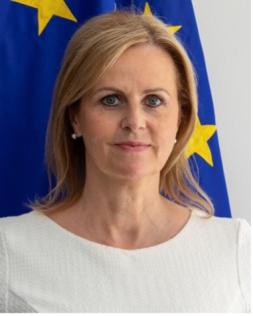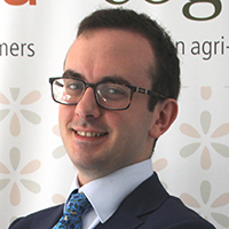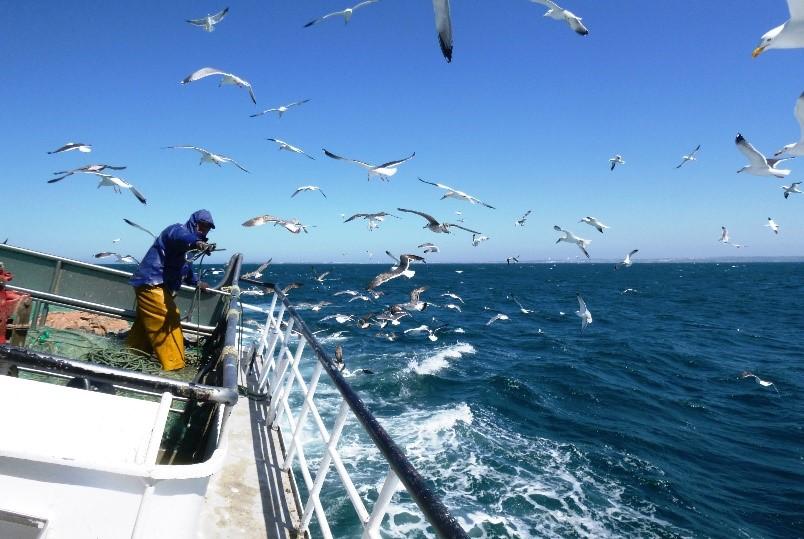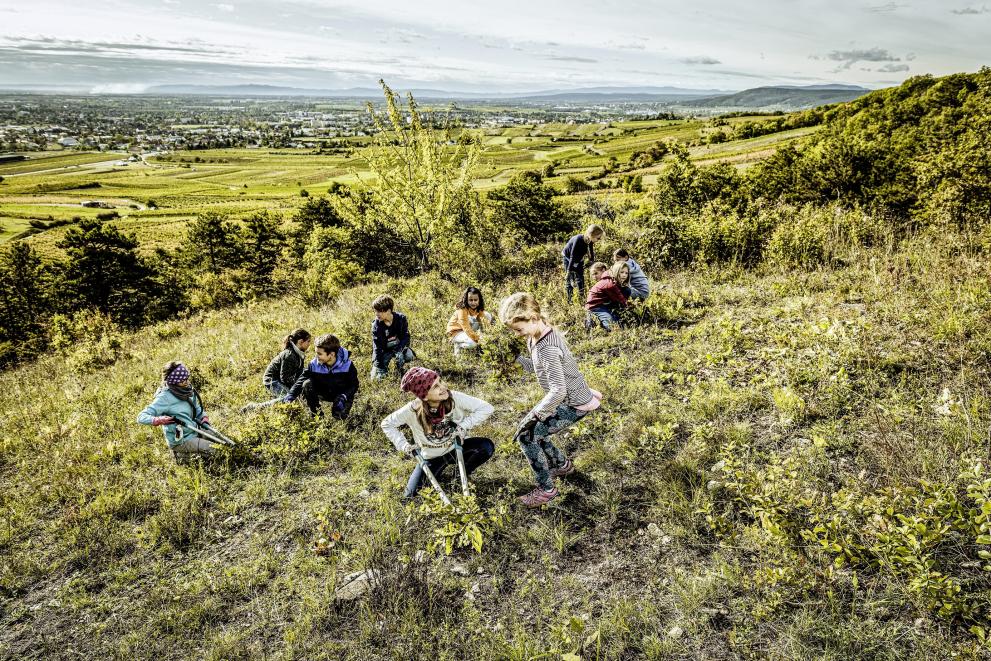The European Natura 2000 Award selection and evaluation process begins with the deadline of the call for applications. It is completed with the announcement of the winners of the five categories and the European Citizens’ Award at the high-profile Award Ceremony, usually held in Brussels on or around Natura 2000 Day on 21 May.
The selection and evaluation process consists of three key steps: eligibility, selection and decision.
Eligibility
Applications must be submitted using the online application form.
All applications are screened for their eligibility. Any entity or group based in the EU is eligible to apply. Applications must explicitly refer to one or more Natura 2000 sites. They can be written in any of the official EU languages except Maltese and Gaelic. All efforts are made to assess the applications in their original language, although in some cases it may be necessary to translate the application.
Applications by multiple applicants are allowed, but one of the applicants has to be designated as the lead applicant. Applicants have to clearly present tangible results achieved in the past five years.
More information on the 2024 eligibility criteria can be found here.
Selection
All eligible applications are assessed by an independent evaluation team. They evaluate applications against five criteria: effectiveness, originality, durability, costs and benefits, and replicability. Applications providing descriptive yet to the point qualitative and quantitative information are likely to score better.
Overviews of the 2024 criteria for each of the categories are provided below (in English only):
The outcome of the selection phase is a shortlist of finalists, established through a ranking of the evaluation scores in each category.
Mariella Fourli holds an MSc in Natural Resource Management. Her career spans over 25 years and focusses on biodiversity conservation and protected areas in Europe, Latin America and Africa. Mariella currently works as a consultant for various international organisations, including the European Commission, providing support for biodiversity-related issues, mostly related to Natura 2000. In parallel, she manages Microsfere, an NGO that she founded in 2007, which focuses on biodiversity conservation and rural development in protected areas in Ghana in West Africa
Claus Goldberg holds an MSc in Biology and a BA in Social Studies and Civics and specialises in habitat and species protection, international agreements and conventions on nature protection, and the national implementation of these agreements. Claus also previously worked as a consultant for the European Commission in evaluating LIFE applications, and as project manager on the ‘Wildlife and Sustainable Farming Initiative’, a project focusing on the biodiversity benefits that Rural Development Policy (RDP) measures can bring.
Claus has assisted with the implementation of the Habitats and Birds Directives in various countries including Estonia, Slovakia, Czech Republic, Latvia, Croatia and Poland. In recent years, many of the projects have been related to Natura 2000-appropriate assessments in relation to new infrastructure, green energy production and coastal protection.
Ana Guimarães Ferreira holds an MSc in Animal Diversity Conservation and a Diploma in Biology. Her areas of expertise include mammal ecology, wildlife tourism and scientific illustration. She has worked for eight years as a member of the external monitoring teams for LIFE-Nature and for more than 15 years as a LIFE application evaluator, three of them as deputy coordinator of the LIFE-Nature evaluation team.
Ana currently works as a consultant for several international organisations, including the European Commission, providing support on the application of environmental law in Portugal and other biodiversity-related issues
Zuzana Guziova holds an M.Sc. in Forestry and Game Management from the Mendel University in Brno, Czech Republic. She has 35 years of post-university professional experience. She has worked as a biodiversity policy specialist, capacity building expert and project manager on many projects, focusing on policies, strategies, capacity building, Natura 2000 network and bird conservation.
Zuzana has participated in the coordination of the UNESCO Man and the Biosphere Programme in Slovakia since 1993. From 1993-1998, she served as a head of the national Secretariat for the Convention on Biodiversity and Project Management Unit at the Ministry of Environment.
Ana Iñigo has 20 years of experience working in nature protection and biodiversity conservation. She is a biologist with an MSc in Protected Areas. Her main specialisation, and passion, is bird conservation. She has been part of BirdLife International for 12 years, working alongside people who care about our planet and preserve it for future generations.
Ana began her professional career in Spain; however, she has lived in different countries coordinating international projects, developing conservation strategies, and influencing advocacy and environmental policy development. Currently, she is working on different projects related to marine habitat restoration and species conservation in the Mediterranean and the Bay of Biscay.
Sira Jiménez-Caballero holds an MSc and a postgraduate diploma in biology and has more than 25 years of experience as international consultant. She has provided technical assistance for nature conservation and sustainable development to a number of international organisations, including the European Commission, UNEP and IUCN, and has worked in the design, implementation, management and evaluation of projects in the EU, the Mediterranean Region, Latin America and Africa.
Sira’s experience as ex-ante and ex-post project evaluator includes 15 years in the LIFE-Nature evaluation team, and she has participated in other calls for proposals launched by the European Commission, including LIFE integrated projects, the ENPI-CBC MED strategic projects for integrated coastal management, and the EMFF calls for a Blue Economy. She has also taken part in the LIFE Growth and Jobs study, with an assessment of LIFE projects from the ecosystem services perspective.
Boriana Mihova has been working in the field of nature conservation for more than 30 years. Boriana has an MSc in Biochemistry and an ongoing PhD thesis in philosophy. The changes in Eastern Europe in the 1990s changed her life course and she joined the IUCN’s East European Programme as the first intern in project development.
Boriana has a long practical experience in protected area management and sustainable development, including managing national parks and establishing Natura 2000 sites both nationally (Bulgaria) and in Croatia and Kosovo. Since 2002, Boriana has been working as a freelance consultant and specialises in project development and evaluation work.
Jan Sliva has over 40 years of experience in landscape ecology and nature restoration. After studying landscape planning at Mendel University in Brno (CZ), he completed a PhD in restoration ecology at TUM in Munich (DE), where he further continued his research on the restoration of degraded ecosystems. Since then, Jan has worked as an independent consultant and landscape planner, specialising in ecological restoration.
In addition to leading and implementing various research projects in Germany and the Czech Republic, Jan worked for several years with academic institutes and rural communities in southern Africa, focusing on the conservation and management of endangered habitats. Over the past 18 years, he has monitored more than 40 LIFE projects in Natura 2000 sites in various EU countries, targeting a wide range of important habitats and species, as a member of an EU-wide consortium, and actively contributes to the Natura 2000 biogeographical process.
Decision
Based on the shortlist of finalists, a high-level jury chooses the winners of the five category awards. In a parallel and independent process, the winner of the Citizens' Award is chosen by a public vote. The European Commissioner for Environment, Oceans and Fisheries announces all six winners at the Award Ceremony.
Jury
The members of the 2024 jury include the Director-General of Environment of the European Commission, and representatives of the European Presidency, the Committee of the Regions and other involved stakeholders.

Dr. Florika Fink-Hooijer is the Director-General of the Environment of the European Commission (DG ENV).
Having occupied various senior management positions in the European Commission, Florika Fink-Hooijer is recognised for her strong management and leadership skills and her in-depth experience in EU policy making and shaping.
A lawyer by training, Florika brings a proven record of accomplishment in foreign external and security policy as well as in humanitarian aid and disaster risk reduction. She has extensive experience in leading complex inter-institutional and intergovernmental negotiations.
In her current role, she is responsible for implementing the European Green Deal objectives in particular the areas of Circular Economy, Biodiversity and Zero Pollution.
Etienne Aulotte has a university degree in Bioengineering and has 20 years of experience in environmental issues.
Etienne has experience in biodiversity and ecosystem management, strategic planning and regional policy development, EU project formulation and coordination, as well as in the main drivers affecting biodiversity (sustainable agriculture, green businesses).
He has worked at Brussels Environment (Bruxelles Environnement, Leefmilieu Brussel) for 15 years, and is currently EU project Coordinator and Fundraiser for the Green Spaces Division.

Viktor Berishaj is an experienced economist specialising in sustainable development, with a robust background in both civil society initiatives in Western Balkans and policy making at an international level in Brussels.
Viktor is the Senior Policy Officer at the EuroNatur Foundation's Brussels office, supporting the EuroNatur’s fundamental role in advancing biodiversity conservation efforts across Europe, dedicated to preserving the continent's natural heritage.
With a career marked by significant contributions to the development and oversight of policies that promote energy transition and climate action in the Western Balkans, Viktor's work focuses on enabling climate action that enhances both nature and community well-being. Viktor has been active contributor from civil society in shaping EU enlargement policies and fulfilling commitments under the Paris Agreement within the UNFCCC framework, advocating for sustainable transition and exploring pathways that are grounded in justice and equity for all stakeholders.

Roby Biwer has been member of the Commission for Environment, Climate Change and Energy at the Committee of the Regions (CoR) since 2014, and Vice-chair in the last term.
Roby Biwer was rapporteur for the CoR opinions on the "Fitness-check of the Nature Directives", "Bio-diverse cities and regions beyond 2020 at the UN CBD COP 15 and in the EU Biodiversity Strategy for 2030", and the "EU Nature Restoration Law", among other opinions on forests and biodiversity. Since 2000, he has been president of SICONA, a politically based inter-municipality group of 21 municipalities which is engaged in synergies to protect and improve natural habitats and biodiversity as well as helping national government in implementing the Birds and Habitats Directives.
Mr. Biwer has also been member of board of a local section of "natur&ëmwelt" (nature and environment), the largest association for protection of biodiversity and environment in Luxembourg, since 1981. Since 2014, he has been the "natur&ëmwelt" national president.

Niall Curley obtained his Bachelor’s in History, Political Science and Sociology from the National University of Ireland, Galway, and a double master’s degree in European Governance from Masaryk University in Brno, Czech Republic, and Utrecht University in the Netherlands.
Niall currently works as the Senior Policy Advisor coordinating biodiversity, soil and water policies for the European farmer and agri-cooperative representative body, Copa-Cogeca. He is currently covering the Nature Restoration Law, the Soil Monitoring and Resilience Law, the Commission proposal to amend the Bern Convention appendices on wolf populations, and the Nitrates Directive.



